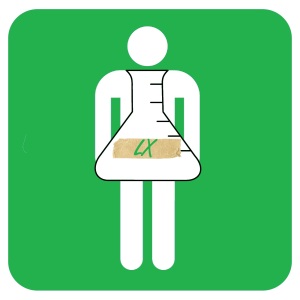Most of the stuff I’ve looked at for this Experiment has been familiar from my carefree, pre-Ladyist days, but one of the purposes of this project was to drive myself to check out things I might have otherwise missed. It’s in this spirit that I gave Pitch Perfect a go.
Those of you who follow my everyday Twitter account will already know how I felt about it.
And I really did want to like it! There were so many promising things about it, not least of which is the incredible Anna Kendrick. She dominated Scott Pilgrim vs The World any time she was on screen, and showed off serious dramatic chops in Jason Reitman’s Up In The Air. If you still need other reasons to love her (YOU HEATHEN), check out her being an Excellent Human Being on Twitter:
Still aren’t convinced? Come back to me in 2 minutes and 43 seconds with a different answer.
For all my high hopes, I wasn’t let down: Anna is the only reason this movie holds together, in spite of a script that reduces her character, Beca (not a misspelling on my part), to “eyeliner enthusiast and headphone model”. She brings a sense of humour and resilient attitude to the role, and can almost make you forgive the mess of unnecessary plots. Beside her, Rebel Wilson gets the only halfway-defined character in the whole movie, and delivers just the right balance of slapstick and sincerity to Fat Amy that keeps her from being reduced to Wacky Chubby Girl.
Apart from St. Anna, there are a bunch of other strong (or at least well-intentioned) parts that save Pitch Perfect from being a total disaster. If nothing else, it’s nice to see a movie that doesn’t reinforce the idea that women are naturally in competition with each other. Given that the story follows the Bring It On model, it’s encouraging to see that the antagonists are a male a cappella group, the Treble Makers, and that the conflicts within their own group are more to do with tradition vs. innovation.
Most of the film’s flaws have to do with the shoddy script, trying as it does to pull Beca into a completely unearned love triangle with the college DJ and one of the Treble Makers (not to mention the forced relationship between her father, which the script seems to forget about). The Romeo and Juliet setup with Chip, or Bort, or Starscream, or whatever her love interest’s name is, feels like studio tampering rather than coming out of any real need in the story, so it leaves the film groping for a climax it doesn’t have when they kiss at the end (OH NO SPOILER wait this won’t really ruin the movie if you’ve seen any movie before ever).
Then there’s the issue with the film’s central idea: a cappella singing is not a natural fit on screen, and director Jason Moore doesn’t know how to shoot them to make it work. The arrangements are fine (if a little flat), and the choreography is fluid and energetic enough to fit the context, but their final, allegedly show-stopping performance doesn’t have the punch to finish the movie. John Michael Higgins and Elizabeth Banks provide most of the movie’s real laughs in their roles as a cappella contest commentators, but the complete isolation from the rest of the movie points to them being added as punch-up, smoothing over the long and often tedious singing segments with more entertaining dialogue.
Given how harsh I’ve been so far, you might be surprised that I’m positive on the idea of a sequel. Pitch Perfect 2 is in pre-production now, and there’s the possibility that it will learn from the mistakes of its predecessor. For instance, Elizabeth Banks is apparently stepping up from her producer role and taking over as the film’s director. That’s encouraging: she’s got a sharp eye for film choices as a producer (ever heard of The Hunger Games?), and she’s got a terrific sense for comic timing. If she can bring a more interesting vision for the a cappella routines, Pitch Perfect 2 could be even bigger than the original.
It’s worth nothing that Pitch Perfect was like a proto-Frozen in a lot of ways. While it didn’t quite hit the same heights as Disney’s ice-musical, it made a significant impact for a soundtrack, having sold over a million copies since its 2012 release, and becoming the best-selling soundtrack of the digital era (until Elsa and Anna came along, of course). Certainly there was a Glee-ish element that helped it along, but, in contrast to the TV series’ rapidly declining sales, Pitch Perfect kept ticking over well after release. As has been the case with a few of the things I’ve looked at here, it seems safe to suggest that there’s demand for young women to see themselves represented on screen, and maybe be part of a group of girls who aren’t constantly in-fighting.
Let’s just hope the sequel is a little less slut-shamey. I have faith in you, Ms Banks!

